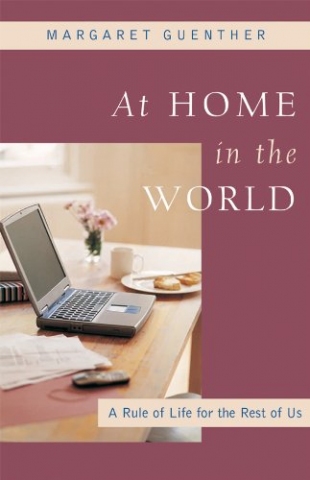"A good rule is not a complicated 'how-to' manual, but a sheltering and sustaining place. A refuge — not for hiding or avoidance, but for gathering strength," writes Margaret Guenther, the former director of the Center for Christian Spirituality at The General Theological Seminary in New York and now associate rector at St. Columba's Episcopal Church in Washington, D.C. and a sought after retreat leader and spiritual director. We all need a trellis in our lives to support the many burdens and challenges of our days. The Rule of St. Benedict was such a resource for monks and nuns in the past. Today many spiritual seekers are recognizing the need for such a rule to help them cope. In this well-written and illuminating paperback, Guenther shares a rule of life that deals with our relationships with God, with other people, with creation, and with our own deepest self.
The ancient practice of asceticism is tainted by the cultural biases of our consumer society where self-indulgence is seen as a birthright and a civic duty: "The idea of deliberate self-denial is alien: you will not find hair shirts at Nordstrom's, and the portions at McDonald's are not conducive to serious fasting. So perhaps it is time to reclaim asceticism, to ponder what it really is, how it might even be conducive to our physical and spiritual health." Guenther believes that the disciplines of obedience, stability, and conversion of life can be turned into helpful practices.
The author spices up this exploration of creating a rule of life with personal stories. She has positive and thoughtful things to say about AA, murmuring, the spiritual practice of hospitality (see the excerpt), dealing with enemies, handling money and possessions, being forgiving, and relishing solitude. Guenther also has a place in her rule for letting go:
"It was a happy day when I discovered that in the English of Chaucer's day — which was also the time of the Black Death — the word 'silly' meant 'blessed.' I am not sure when we strayed away from its original meaning, when blessedness took on a churchy aura and silliness became the realm of Monty Python and fourth-grade scatological humor. As hard-working adults we too often lose the gift for letting go, for delight in simply being. We persuade ourselves that every moment must be lived productively; like the busy little bee, we feel a holy obligation to improve each shining hour. We would do well to take very small children or big silly dogs as our teachers."
